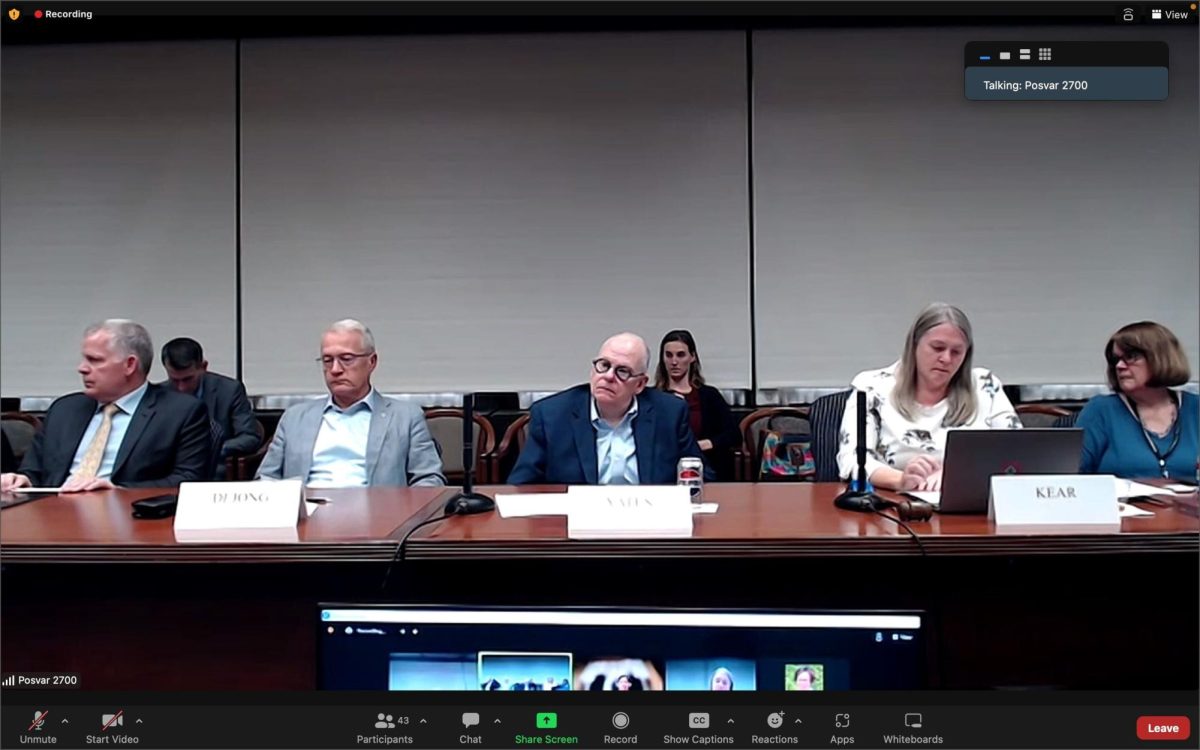Chancellor Joan Gabel opened Thursday’s Senate Council meeting by addressing the recent attacks in Israel.
“I want to start by acknowledging the horror of the terrorist events that have taken place in Israel, which have had a resounding effect on multiple members of our community in a whole host of different ways,” Gabel said. “We put our first reaction to this yesterday afternoon and a second reaction, if you haven’t seen, in your email about a half an hour ago.”
Senate Council met Thursday afternoon in room 2700 of Posvar Hall and over Zoom. The council discussed the attacks in Israel, the new safety training module and the interim policy on research data management.
Senate Council President Robin Kear said with the fifth-year commemoration of the Tree of Life massacre approaching, she found her thoughts “inevitably intertwined” with the recent attacks in Israel.
“We can condemn those atrocities, want to hold those responsible parties accountable, and fear the further destruction of war — fear for those who are held hostage and fear for each and every life that is taken and each family that is destroyed,” Kear said.
Kear said the Pitt community hopes to support its members affected by the “atrocities” in Israel. She said the Pitt community should have hope as everyone attempts to understand the roots of the conflict.
“We can help them stand up and hold on just as we have done and continue to do for other tragedies that are closer to home and in other countries,” Kear said. “We can continue our educational mission of understanding and empathy for others within our spaces — our classrooms and our libraries.”
David DeJong, senior vice chancellor for business and operations, said Pitt created a new safety training module to keep the Pitt community safe and secure. He said students and staff can access the training module on the Environmental Health and Safety website.
“We have developed a training module that we are strongly encouraging everyone to participate in,” DeJong said. “The trainings are designed to empower folks to be equipped to respond appropriately in crisis situations — very critical. In partnering with our first responders in dealing with those crises, we really want everyone to participate in that training.”
Bill Yates, vice chancellor for research protections, introduced a new interim policy on research data management. He said Pitt did not previously have one, even though many other major institutions do.
“Federal funding agencies, publishers or regulatory authorities require that we be able to validate research outputs if there are any concerns about research integrity without robust data management at the university,” Yates said. “We can’t do that. There’s a federal law, the Bayh-Dole Act, that requires the university to commercialize promising ideas stemming from federally funded research.”
Yates said Pitt has dealt with problems related to data management in the past. He said his group is responsible for research integrity assessments for plagiarism, falsification or fabrication of data.
“We’ve been told more than once lately, ‘Oh, the data in question the graduate student collected, and they were on their personal computer — they’re gone now,’” Yates said. “So, if we don’t have the data here to validate a study conducted at the University, very likely the publisher will not be satisfied that the concern was addressed and will retract the paper.”
Yates said there are requirements for securing research records, and added that the requirements are in place to protect the research that is being conducted at Pitt. He also said if the federal government funded the research, the funding agency may require a more formal data management plan.
“You have to keep your data at the university,” Yates said. “Of course, as we say in the policy, field research, you’d collect the data outside the university, and you have to bring it to the university if [or] when appropriate. If it’s electronic data, it needs to be secured on a university server.”


